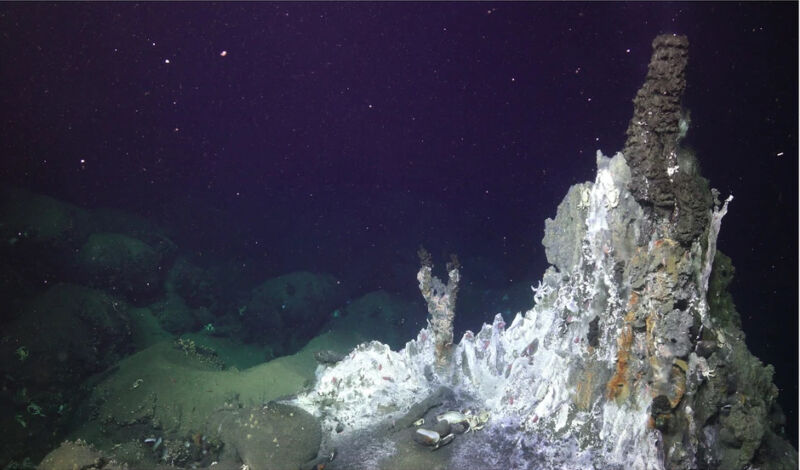Massive underwater eruption may preview deep-sea mining destruction

Enlarge / Following the 2022 Hunga volcano eruption, a nearby hydrothermal vent was seen coated with a white mat of bacteria and surrounded by a thick layer of ash. The vent usually supports animal life that survives using chemical energy from the vent fluid, but those creatures were almost entirely wiped out. (credit: Beinart, et. al.)
In January 2022, a placid patch of the ocean's surface near the islands of Tonga suddenly exploded with activity. After a month or so of activity, an underwater eruption of unprecedented scale from the Hunga volcano blasted ash up through the water column and more than 30 miles into the air, where it quickly spread out in a billowing plume spanning hundreds of miles.
The blast was so powerful that it rang Earth like a bell; it produced a shockwave that circled the globe multiple times and released a sonic boom heard as far away as Alaska. The eruption also triggered a tsunami that affected coastlines across the Pacific Ocean and made waves recorded in Japan, North and South America, and Antarctica.
Quite by surprise, scientists discovered that the eruption also had an underwater aftermath, recently described in a paper published in the journal Nature Communications Earth and Environment.